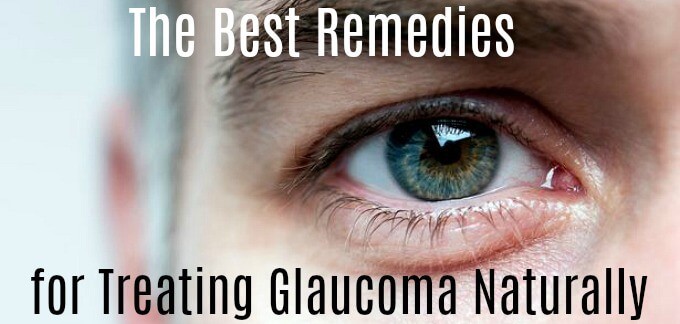
Treating glaucoma naturally has gained popularity in recent years, and for good reason! Glaucoma is a group of diseases that negatively affect the eye's optic nerve that can result in vision loss and is the second leading cause of blindness after Macular Degeneration. Glaucoma can be a serious disease that needs treatment as soon as possible, or loss of vision is imminent.
In the healthy eye, fluid is produced and drained at equal rates. If this cycle is thrown out of balance and the fluid cannot drain properly, it builds up and puts pressure on the optic nerve, the retina, and the lens. Over time, this rise in pressure can partially damage or destroy the retina and even the optic nerve causing blindness.
Today, we're going to go over some natural glaucoma remedies that can help manage its symptoms. So, while there is no cure for this condition, you can at least support your eye health using proven treatments for glaucoma.
The Types of Glaucoma and Glaucoma Symptoms
There are two major forms of glaucoma, each with its own symptoms associated with the condition.
Open-Angle Glaucoma
If the outflow channels are open yet become clogged with debris, it is known as open-angle glaucoma. If the channels are blocked by the iris, it is known as closed-angle glaucoma.
Symptoms of Open-Angle Glaucoma
- Mild headaches
- Narrowing peripheral vision
- Tunnel vision
- Vague visual disturbances (“halo effect” and trouble adapting to darkness)
Chronic open-angle glaucoma is the most common form of glaucoma and occurs over years. This is due to the slow build-up of fluid and slow drainage from the anterior chamber of the eye.
Closed-Angle Glaucoma
Symptoms of Closed-Angle Glaucoma
• Intense pain in one eye
• Nausea and vomiting
• Red, swollen, watery eyes
• Swollen eyelids
• Vision disturbances
• Vision loss and/or blindness
In closed-angle glaucoma (sometimes called angle closure glaucoma), fluid pressure rises very quickly and causes intense pain in one eye accompanied by headache, blurred vision, and halos around lights.
The eye will feel hard to the touch, the eyelid will swell and redden, the eye will water, and the pain may even cause vomiting.
If you experience any closed-angle symptoms above, it is highly advised to seek medical attention immediately, as permanent vision loss or total blindness can occur in just a few days.
Both open-angle and angle-closure glaucoma types are serious conditions and should be treated by a specialist, especially if you have acute angle-closure glaucoma.
Glaucoma Risk Factors
The risk factors for glaucoma include age, race, family history, and pre-existing conditions such as diabetes or hypertension. Other risk factors may include prolonged use of corticosteroid medications and trauma to the eye (my grandmother got it from Lasik eye surgery).
People with nearsightedness are also more likely to develop open-angle glaucoma than others.
Glaucoma typically affects those 65 and older but can affect almost anyone. Glaucoma tends to run in families, so it's important to know if any of your relatives have ocular hypertension or full-blown glaucoma.
The Cause of Glaucoma
There is no singular root cause of the condition known as of yet, but it is believed that a variety of factors come into play, like environmental toxins, nutritional deficiencies, certain medications, high-stress levels, and other factors that may predispose one to develop glaucoma.
If left untreated, glaucoma can cause optic nerve damage and blindness. Glaucoma cannot go away on its own. Conventional treatment of glaucoma is often required in order to manage symptoms safely, so it's extremely important that you work with an ophthalmologist even when exploring natural alternative treatments for glaucoma.
The Root Causes of Glaucoma
• Accumulation of wastes and toxins in the body
• Certain prescription drugs, including corticosteroids, blood pressure meds, and antidepressants
• A family history of glaucoma
• Illnesses like macular degeneration and other eye disorders put you at an increased risk for glaucoma
• Metabolic slowing due to aging (oxidative stress in glaucoma patients is common)
• Nutritional deficiencies (one of the leading causes of glaucoma)
The Best Remedies for Treating Glaucoma Naturally
Now that you know more about this condition and its symptoms, it’s time to get into the best natural treatments for glaucoma.
Remedies for glaucoma include:
- Diet changes
- Supplements like herbs, vitamins, and minerals
- Homeopathy
- Acupressure
- Conventional glaucoma medications
- Eye drops
- Regular eye exams (to monitor the pressure in your eyes)
Recommended Healthy Diet for Treating and Preventing Glaucoma and Optic Nerve Damage
Certain nutritional deficiencies can contribute to the development of glaucoma. A lack of antioxidants in the body, such as vitamins C and E, can lead to oxidative stress, which has been shown to increase the risk of developing glaucoma.
Low levels of zinc may also play a role in increasing the probability of developing glaucoma. Research also suggests that inadequate intake of omega-3 fatty acids is linked to some types of this condition.
Eating a clean diet full of fresh fruits and vegetables, whole grains, cold water fish, and organic grass-fed animal products is key to getting all the nutrients you need for optimal eye health.
Here are a few foods to focus on that help with high eye pressure:
- Foods high in antioxidants like kale, collard greens, spinach, and blueberries
- Foods high in omega-3 fatty acids, like high-quality salmon and sardines
- Fruits and vegetables such as carrots, oranges, papaya, apples, and broccoli (especially citrus, which is high in bioflavonoids)
- Whole grains such as quinoa, oats, and barley
- Legumes like lentils and beans
- Nuts and seeds such as almonds, walnuts, and flaxseeds
Consuming plenty of dark leafy greens and orange and yellow fruits and veggies is especially beneficial for improving vision and overall eye health as they are full of vitamin A, which may help reduce the risk of glaucoma.
The bioflavonoids found in citrus help fight free radicals and keeps the soft tissues and collagen around the eye flexible and healthy and may help reduce eye pressure, slow the progression of glaucoma, and generally help prevent eye disease.
It is recommended that if you have been diagnosed with glaucoma, to drink fluids steadily throughout the day and not in large quantities at once. This may raise the pressure in the eye.
Consuming high-quality fish oil 2-3 times a week is known to lower eye pressure.
Brewer’s yeast, kelp and other sea vegetables, leafy greens, apples, safflower, and sesame oils are all known to contain high amounts of chromium, which have beneficial effects on glaucoma and general ocular hypertension.
Foods to Avoid if You Have Glaucoma or Preceding Conditions
Avoid eating foods that you are allergic to or intolerant to, as this increases inflammation in the body.
Consuming caffeine has been shown to reduce healthy blood flow to the eyes, which can exacerbate slow fluid flow within the eye.
Liver toxicity has been known to be related to eye problems, so be sure to avoid the overconsumption of alcohol, processed foods, and processed sugars.
You can learn how to do a liver cleanse here if you’re interested.
The Best Supplements for Treating Glaucoma Naturally + My Favorite Remedy for Reducing Eye Pressure FAST
Below are some of the best supplements and herbal remedies to consider to help keep eye pressure balanced and help prevent it from rising. I worked closely with my eye doctor and was monitored while experimenting with these alternatives. Do not do this all on your own without the guidance of an optometrist.
You definitely don’t want to mess with potential vision loss and blindness, so proceed at YOUR OWN RISK!
1. Magnesium
Taking 250 mg of magnesium daily can help relax blood vessels and greatly improves healthy blood flow and circulation to the eyes.
You can use an oral supplement like Natural Calm or even apply magnesium via the skin by using a magnesium lotion, liniment, gel, or oil. Do not apply this near the eyes as it is irritating to delicate skin.
2. Vitamin C
Studies have shown that taking 2,000 mg of Vitamin C per day can drastically reduce intraocular pressure by a whopping 16mm Hg. An even more aggressive approach is to see a physician who can administer intravenous Vitamin C. However, the effect only lasts as long as the Vitamin C is being taken, so if you stop, your pressure may rise again.
It is generally recommended to take 1,000 mg of Vitamin C two to four times daily. Be careful, though! If your body isn’t used to taking Vitamin C, it can have a laxative effect.
3. Fish Oil
Taking 1,000 mg of high-quality fish oil (600 mg of EPA and 400 mg DHA) has been shown to significantly drop eye pressure. The Omega fatty acids will also keep your eye tissues strong and healthy.
4. Alpha Lipoic Acid
This powerful antioxidant has shown good results in regard to lowering eye pressure. It helps protect your eyes from free radical damage and keeps the soft tissue of the eyes supple and flexible.
It is recommended to take 100 mg of alpha lipoic acid twice daily.
5. Bilberry Extract
The powerful anthocyanins found in bilberry are believed to be the key bioactive responsible for improving vision. It also contains flavonols, quercetin, catechins, tannins, ellagitannins, and phenolic acids. However, it is the anthocyanins that are believed to be responsible for their effects on cell-signaling pathways, gene expression, and DNA repair.
Because of this, bilberry is suggested as a treatment for damaged retina, macular degeneration, glaucoma, and cataracts. Its high flavonoid content supports eye structure and function and increases healthy blood flow to the eye.
It is recommended to take 160 mg twice daily of a 25% anthocyanosides extract.
6. Ginkgo Biloba
One investigation sponsored by the Glaucoma Research Foundation concluded that herbal therapies such as the use of ginkgo biloba improves the visual field damage in some patients with normal-tension glaucoma.
Ginkgo is known to improve blood circulation in sensitive tissues such as the brain and optic nerve. Improved circulation to these organs may ease the course of glaucoma.
It is recommended to take 60 mg three times daily of a 24% flavone glycoside extract. Keep in mind that the herb must be consumed continually in order to produce clinical benefits.
7. Chromium
For those who suffer from diabetes, hypoglycemia, hyperglycemia, and other blood sugar conditions, it is important to eat a diet high in chromium-rich foods or to take a chromium supplement to help balance blood sugar and regulate eye pressure.
It is recommended to take 250-500 mg of chromium twice daily.
Natural Remedies for Glaucoma - Honorable Mentions
• Grapeseed extract – a powerful antioxidant that helps improve vision. Take 100-200 mg once daily.
• Rutin – a bioflavonoid that helps support eye tissue health and function. Take 20 mg three times daily.
• Pycnogenol and bilberry – A mixture of 80 mg of pycnogenol and 160 mg of bilberry extract was found to significantly improve intraocular pressure over a 6-month period.
Frankincense Essential Oil for Glaucoma
My favorite natural treatment for glaucoma is using diluted frankincense essential oil around my eyes first thing in the morning when eye pressure is highest.
My optometrist and I did an experiment where I would come in to measure my eye pressure in the morning, apply the frankincense serum around my eyes, wait for 10 minutes, and then measure my pressure again. We found that my pressure would drop by about 2 points in each eye with this method alone. It was pretty amazing!
To make the serum, simply fill a 10ml roll-on bottle with sweet almond oil or your carrier oil of choice and add five drops of frankincense (Boswellia sacra), and apply it along the entire orbital bone 2-3 times daily.
Cannabis for Glaucoma
Cannabis is an increasingly popular option for treating patients with glaucoma, as it can reduce intraocular pressure and provide relief from symptoms.
Studies have shown that cannabis can reduce eye pressure by up to 30% for up to four hours at a time. It also has anti-inflammatory and neuroprotective properties, which can help protect the optic nerve from damage.
Marijuana may also reduce pain associated with glaucoma, such as headaches and eye strain.
When using cannabis for glaucoma treatment, it is important to consult with a doctor beforehand and follow dosage guidelines carefully.
You can read some studies on the efficacy of cannabis for glaucoma below:
- Cannabinoids for glaucoma
- A preliminary study of the effects of marijuana on intraocular pressure
- Medical marijuana use is associated with a decrease in the severity of glaucoma symptoms
Glaucoma Treatment Using Homeopathy
When it comes to glaucoma, homeopathic treatments are becoming increasingly popular as they focus on treating the individual rather than just the disease itself.
Homeopathy works by stimulating the body’s own healing response and improving its ability to fight off infections, balance hormones, and manage stress.
Homeopathic treatments for glaucoma include herbs such as turmeric and chamomile, nutritional supplements like omega-3 fatty acids, and acupuncture.
While there is no scientific evidence that homeopathy has any effect on glaucoma specifically, many people find relief from symptoms with these natural treatments.
Homeopathy for Glaucoma
Since glaucoma is a constitutional disorder, it is important to see a homeopathic practitioner for specific homeopathic options.
Treatment of Glaucoma Using Acupressure
Acupressure is a form of traditional Chinese medicine that involves applying pressure to specific points on the body to relieve pain and promote overall health and well-being. When it comes to glaucoma, acupressure can be helpful in relieving eye strain, improving vision, and reducing intraocular pressure.
Specific pressure points can help stimulate circulation around the eyes, improve lymph drainage, relax muscles, reduce inflammation in the eye area, and clear energy blockages.
In addition to providing relief from symptoms, acupressure can also help prevent further damage to the optic nerve caused by high ocular pressure.
It is important to consult with a professional before starting treatment to ensure safety and get the best results.
Acupressure for Glaucoma
While acupressure cannot cure glaucoma, it can be especially helpful for those who use their eyes a lot and suffer from eyestrain.
Use the acupressure points below to help manage glaucoma symptoms:
• Stomach 3 (St3) relieves pressure on the eyes
• Bladder 10 (B10) soothes eyes that are red and tired from strain
• Large intestine (L13 and L14) to improve blood flow to the head and eyes
I have included pictures of the acupressure points below for the eyes:
Images from pg. 677, 679, and 681 of Prescriptions for Natural Cures.
Bodywork for Glaucoma
Massage won’t prevent glaucoma from developing in and of itself, but it can help relieve tension in the neck and shoulders and improve healthy circulation to the head and eyes. Try to massage the neck and shoulder once daily for upper body tension relief.
Aromatherapy for Treating Glaucoma Naturally
The use of powerful essential oils is one of the best ways to help control ocular hypertension and chronic glaucoma symptoms. Not only can they reduce stress which is known to be a contributing factor in the development of glaucoma, they can also help balance eye pressure and improve circulation to the eyes.
Some of the best essential oils for glaucoma include:
• Clove
• Cypress
• Frankincense
• Helichrysum
• Lemon
You can learn more about how to use essential oils for glaucoma HERE.
Other Recommendations
Avoiding long periods of eyestrain while reading, playing video games, or working on the computer is key to keeping your eyes rested and healthy.
Avoid watching TV in the dark, as extended periods of time in darkness can bring on acute glaucoma.
Smoking can greatly inhibit healthy circulation to the eyes and retina, so it’s recommended to stop smoking and avoid secondhand smoke as much as possible.
Mild to moderate aerobic exercise is known to improve and balance eye pressure.
Frequently Asked Questions about Treating Glaucoma Naturally
How can I reverse glaucoma naturally?
While there is no known cure for glaucoma, there are some natural treatments that can help to reverse or slow the progression of the condition. These include regular exercise, taking omega-3 supplements, and consuming antioxidant-rich foods such as berries and dark green vegetables.
Regular eye exams are also important for detecting any changes in eye pressure early on.
Practicing relaxation techniques such as yoga and meditation can also help reduce stress which can help manage symptoms.
It's important to detect glaucoma in its early stages in order to preserve your vision, so don't wait too long before seeing a specialist.
How can I reverse glaucoma naturally two weeks?
Some strategies can be implemented in two weeks that may help to reverse or slow down its progression.
These include regular exercise (20-30 minutes a day), taking omega-3 supplements, and consuming antioxidant-rich foods such as berries and dark green vegetables.
Be sure to work closely with your optometrist during the two-week period in order to detect any changes in eye pressure early on and get the proper eye care you need.
What is the fastest way to bring down eye pressure?
The fastest way to bring down eye pressure is by using prescription medications, such as glaucoma eye drops and pills, that reduce the production of aqueous humor in the eye.
Glaucoma is one of the leading causes of blindness (in fact, glaucoma is the second leading cause), so don't mess around with this condition.
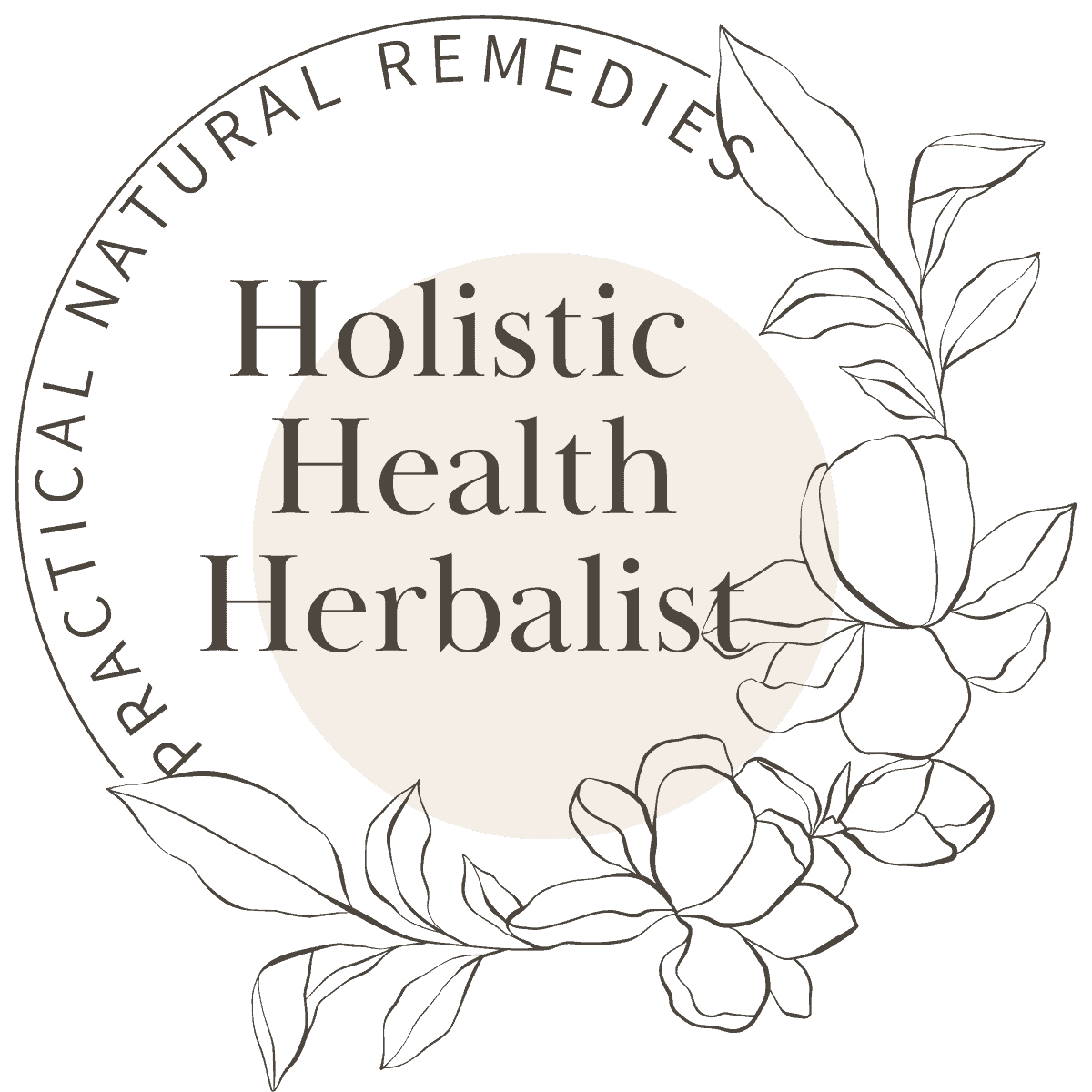

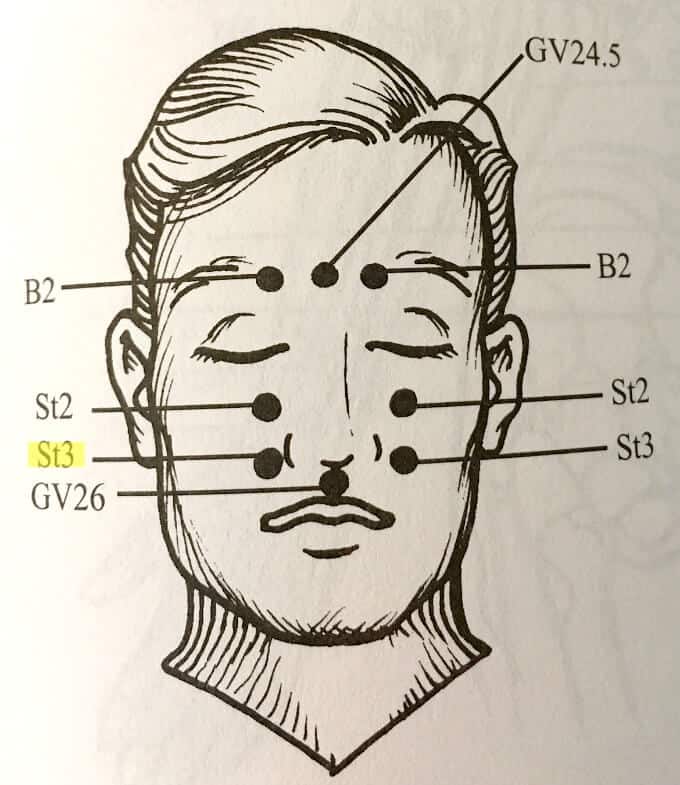
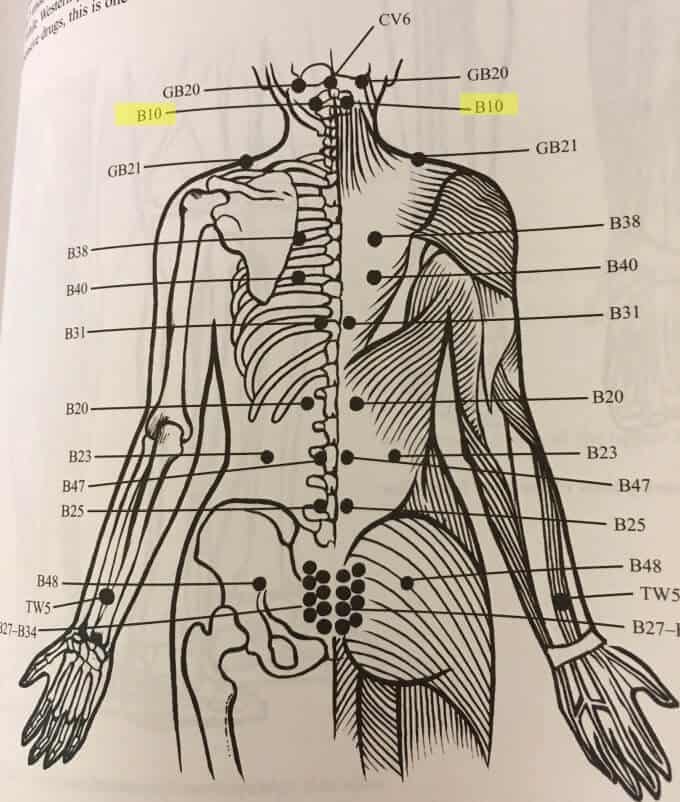
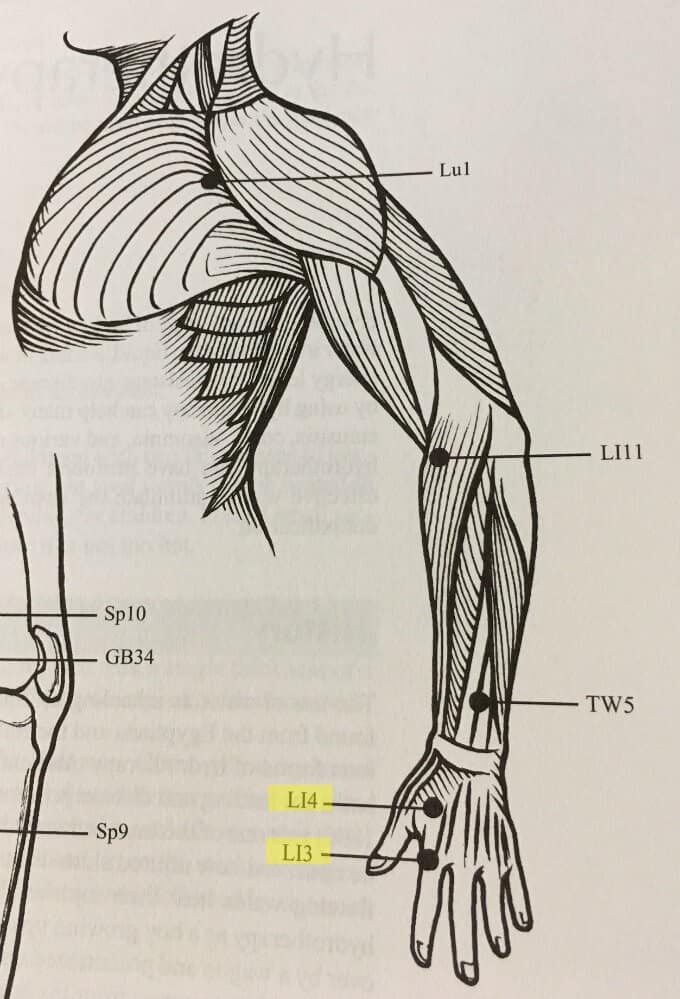

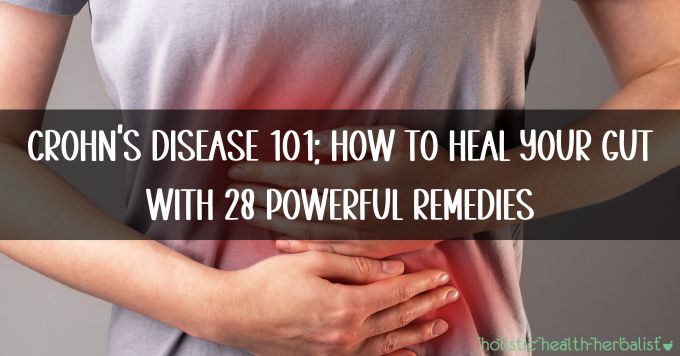
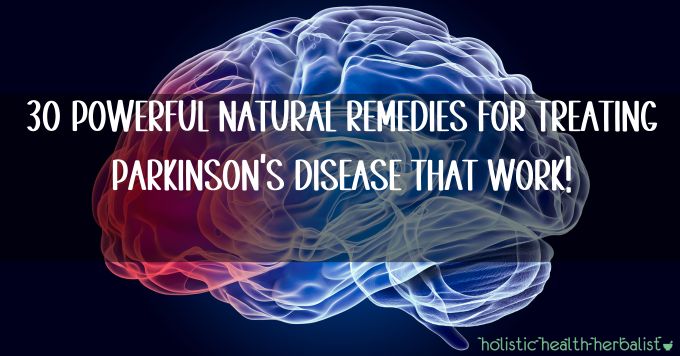
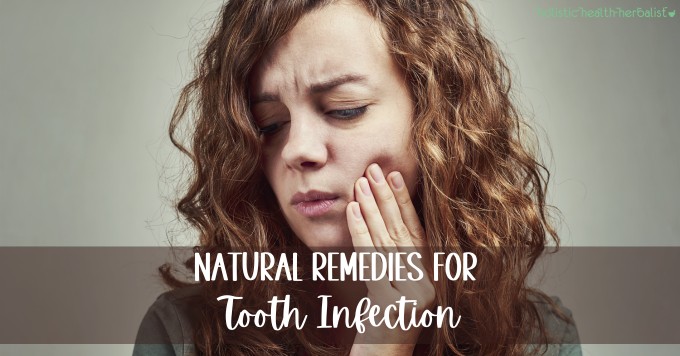
abdulla alqaisy says
Great Article!, dear, doctors think i have glaucoma because my eye pressure is between 18 to 23. after doing massage, eye pressure goes down but then back to how it was. i have been doing massage by "austin goh" you can find him on youtube. anyway have you treated your glaucoma ? how can i treat it as i am only 31 as you. am looking for other ways than the drops, i dont want to take drops whole my life. does fixing diet treat glaucoma forever ? i am curious to talk to you about it, please add me on facebook (www.facebook.com/abdullakc) i want to chat with you. thanks
Rondi Torres says
I have a quick question, smelling peppermint oil it would that be good or bad for glaucoma ? I do frankincense and cypress around my eyes every day, I hope that’s OK. I was doing CBD oil and my pressure went up three points so I stopped that. I just wondering about the peppermint because it helps me in so many other areas. Thank you so much
Monica says
Hi Tash-
Ten years ago I was in a research study for a topical ointment to treat rosacea. It was brominidine tartrate (alphagan) - a vaso-constrictor.
After several applications with some mild side effects, I ended up having an anaphylactic response by the fourth round.
I am sensitive to many things and am hesitant to be treated for illness and go to the doctor only rarely. Two years ago, at 49, I went to the eye doctor for the first time and was told I was the early stage of glaucoma. I also had a reaction to the eye drops they used to dilate. I have since discovered that the main treatment for glaucoma are brominidine tartrate drops.
I am wondering if there is some weird connection between the reaction I had years ago and my eye pressure. I have a referral to see an immunologist. Trying to be a bit of a detective, though, myself. Thanks for any info you might have!
Paula says
Hi my name is Paula and this afternoon my daughter told me that my grand daughter's have glaucoma the ages are (6) and the oldest is age (10) the 6 years is high and my 10 year old is not that high Next month they are going to see a specialist my question to you is what can me and my daughter to to slow this glaucoma down they are so young and is this normal in children thank you and i will wait for your respond.
Tash says
Hi Paula!
So sorry to hear about this 🙁 Really, the only thing I can recommend is for them to go to a specialist. Glaucoma is no joke and should be monitored very closely, especially in those who are so young. It would be terrible to compromise their vision (well, it would be terrible for anyone!). You can, of course, do research on the studies that have been done on vitamin C, but I highly recommend that a specialist is closely involved in any natural remedy treatments.
Best of luck!
Billdavis393 says
Is vibration good for glocoma?
Mushir Shaikh says
Just a simple question. My IOP was found to be 23 and 26. Doctor was hesitant to start me on drops but he did say we should try it for a month - can and do people get off the drops if their pressure is back to normal? I don’t have any eye issues other than the elevated IOP detected for the first time.
Tash says
Hi Mushir!
It just depends. I think it's possible to not HAVE to be on drops, but it's super important that that decision is made by a qualified eye specialist. I have been able to avoid the drops by being very consistent with taking vitamin C and being closely monitored by my eye specialist. Best of luck 🙂
alotov says
I have Open-Angle-Gluacoma, and was kind of diagnosed two years ago - not that the hospital wanted to tell myself exactly what I have - I had to drag out of them that I have gluacoma. The pressure was up in the low fifties for each eye.
I take vitamins and minerals, C, E, flax oil, evening primrose, D3, Ginkgo Biloba, cod liver oil; but I also take government eye drops - but I am looking to get rid of this.
The liquid from the goverment eye-drops settles on my chest - I have noticed that when I get a cold my throat and chest is het like it was never before; and I have permanent phlegm on my chest at the best of times now.
Its strange as if I just for a few days I do not take the vits and come back I notice the difference in light - everything is brighter.
Kate H says
Thanks for writing about this for it is so very helpful to people! Kudos to you!!! Sincerely, Kate
Tash says
Hi Reeses,
Of course, I appreciate your informed comment! I always encourage others to speak with their doctors before trying these methods. I myself am under the care of my optometrist who carefully monitors my eye pressures and we have found that certain natural methods have worked for consistently keeping my pressures within normal range (they work for ME and may not work for others). I would hope others are not just doing these things on their own.
Rachel says
Do you know much about normal tension glaucoma? I was diagnosed a few years ago and they had a laser procedure that appears to have been successful in keeping my eye pressure down to low normal. I had a hemorrhage in my left eye a few years ago. I was told that it healed well, but now I am showing signs of thinning cornei thickess. Can you recommend any specific remedies for normal tension glaucoma condition? Thank you
Tash says
Hi Rachel!
I'm not familiar with normal tension glaucoma 🙁 Are you under the care of a glaucoma specialist?
Dr BYRD says
A Dr's perspective: I would like to reply in regards to the person's question about normal tension glaucoma (NTG). I am a therapeutic optometrist/optometric glaucoma specialist who believes in homeopathic help but I also Rx multiple medications for glaucoma patients every day in clinical practice. Normal tension glaucoma (NTG) is a type of glaucoma where the angle is open and the pressure is normal (never above IOP of 21-22) yet the optic nerve still is thinning out just as if the pressure was high. NTG tends to be most common in older females and in my experience is usually slow in progressing (thank God). We don't understand exact cause (just like we don't regular high pressure type of glaucoma: primary open angle glaucoma) but we know that reduced blood flow to the optic nerve is a certain risk factor. For example, patients with sleep apnea, who have reduced brain oxygen at night, are more at risk. I would recommend frequent exercise in order to improve blood flow to all parts of the body, an anti-inflammatory diet that would promote healthy vascular levels (keeping cholesterol, BP in check), and overall healthy lifestyle. Supplements that aid these things would be fine. Many of us walk around micro-nutrient deficient- it's important to think about are we getting "enough of the good food" and not just "I can't eat this or that." A diet rich in a variety of vegetables is very important. With my own glaucoma patients, if they want to take supplements on their own and employ certain types of diets, I am fine with that. If they are shown to have true, active glaucoma at risk for progression I will not continue seeing them if they refuse to take the Rx drops because I refuse to be the one watch them lose their eyesight- not on my watch! I could also lose my license...Additionally, most of the drops are very safe and Rx treatment is VERY effective. Treatment for NTG is the same as for "regular" open angle glaucoma- you get the pressure down lower than the untreated pressure- you lower it, stabilize it, and watch for progression. If progression starts, it's the cue that the pressure needs to be even lower. Every case is different and glaucoma care is highly individualized. It's impossible for a glaucoma patient to monitor progression on their own because the disease is asymptomatic for the longest. I recently saw a female patient who is the spouse of a retired M.D. physician who did solely holistic care (no conventional). Her eye pressure was too high, she had definite significant visual field loss, and she refused to take the medication and said she wanted to employ natural therapies. I told her she had 6 weeks to show me some change (I would love for her to not needs meds!)...she came back 6 weeks later and fully admitted to very little diet/lifestyle changes and nothing had changed. She then started an eye drop with me. My own father does not have glaucoma but his pressure was running around 26 last year consistently. We discussed starting an eye drop but I cringed at the thought of him being on drops forever...he lost approx 18 lbs and pressure dropped to 18!! No drops have been needed and I cheered! Weight is not always a direct correlating factor (I see morbidly obese patients everyday whose pressure is 14 or 16!) but everyone's body is different and it may have been not just the weight loss for my dad, but the fact that he stopped eating white bread and cut back on the body-killing Dr Peppers...I do believe if people radically change their diet/lifestyle then the majority of physical disease (not just glaucoma) would either dramatically improve or reverse. However, let me be very clear- glaucoma is NOT something you want to mess with! The damage goes on behind the scenes, with 95%+ of glaucoma patients having ZERO symptoms until severe stage!! So, whatever you decide, please stay under the care of a eye doc who does lots of glaucoma care!
Tash says
Thank you SO MUCH for this informative comment!!
Tash says
Hi Usame!
I highly encourage you to stay under the care of a certified optometrist! an IOP of 52 and 56 is very high and needs to be watched very closely. I'm so sorry to hear about your injury, but I'm afraid your situation is a bit beyond me. You can of course, always take vision supportive supplements (like Vision Optimizer), vitamin C, and fish oil to help but you will also need more conventional treatment.
I wish you luck!!
Chidozie Anya Uka says
Please what can I use to make my vision improve
Tash says
Hi Chidozie!
I recommend looking into a good overall vision support supplements like Vision Optimizer.
Tash says
Hi slimangel!
I'm not sure if surgery can correct glaucoma 🙁 I'm assuming it may relieve some of the pressure, but I really don't know. All I do know is, once vision is lost it can't really be restored. There are medicated drops that can at least prevent glaucoma from worsening. I would definitely talk with an optometrist and get their opinion on the best treatment for your brother. Natural remedies are good and all, but if his glaucoma is advanced, he may very well need conventional treatment.
James Miller says
The accepted cause of chronic glaucoma is given as high eye pressure brought about by a blocked drainage channel. Dr Chen at MIT and Harvard Medical School says that recent research points to a faulty immune system as the cause of glaucoma. Would you like to comment on this?
George says
A friend of mine went for the test the first time and he's iop was 28,26
And now it's dropped to 22,18 what does it mean? Is it significant enough?
Tash says
Hi George!
That's a pretty good drop! It may be worth it for him to see what his optometrist has to say as far as treatment options go. Perhaps he would be able to try the natural remedies if he gets the green light.
Belson Opticians says
In glaucoma, the fluid pressure that is present within our eyes rises to a greater extent. If not treated on time it can affect the eyes widely which can even lead to permanent blindness of the affected persons. Thank you for sharing these details which are really helpful in understanding glaucoma and different aspects of it.
Dorothy says
What about E.W for natural glucoma treatment?
Tash says
Hi Dorothy!
I'm not sure what E.W is, can you clarify? Thanks! 🙂
Kabiru says
Aslm. Please I want know if Habbatus Sauda can be use for child of one month and above.
Tash says
Hi Kabiru!
The evidence on safety is sparse so I would err on the side of caution and not use it for children.
Ronald Nyougo says
I really thank you for the above remedies! Additionally, I suggest that exercising daily is very crucial as it's the number one natural way to detox our bodies. Thanks a lot!
Don Forncrook says
I have been treated by twin Glaucoma patients I have along list of eye drops they have me taking everything is going iffy some deays not good other days BETTER.
Don
Sarita says
Hi Don
You may consider taking homeopathic remedies for glaucoma. My father has tried homeopathy for glaucoma with amazing results.